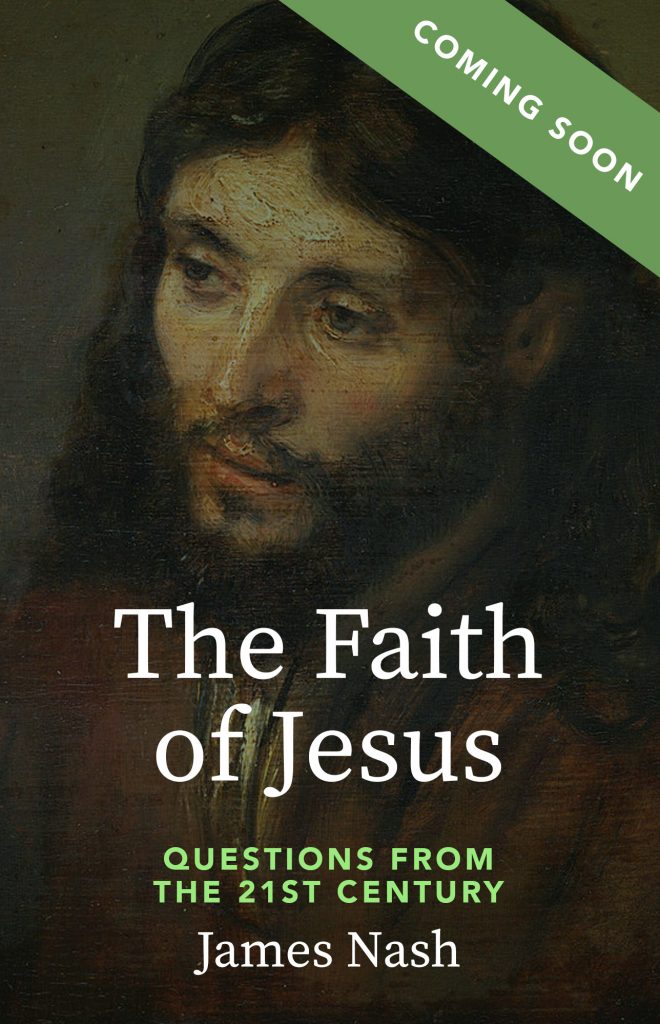29th Sunday Ordinary Time
Exodus 17:8-13
2 Timothy 3:14-4:2
Luke 18:1-8
When you stop to think about it, this parable is at odds with itself. The moral point of it is that we need to be persistent in prayer, and not lose heart. We are to keep praying, no matter what, because faith and prayer are presented as two sides of the same coin. Faith and prayer are linked in the final verse (verse eight) when, after we have been told we must keep praying, Jesus asks rhetorically, whether the Son of Man will find faith on earth when he returns at the Second Coming.
The problem is in the very same verse Jesus assures God’s chosen ones that if they cry day and night for his help, God “will swiftly bring them justice.” If God is going to bring justice swiftly, why do we need to be told not to lose heart, to be persistent in prayer? Is not the parable self-contradictory?

The parable raises a still more troubling question. It is telling us something that seems to be demonstrably false. God does not swiftly bring justice to his chosen ones. Jesus himself prayed to God in Gethsemane to deliver him from the injustice of death on the cross. God declined to do so. You cannot be more “chosen” than Jesus, and you can’t have more injustice than the crucifixion of our sinless savior.
Millions of God’s chosen people prayed to be delivered from the Shoah in the last century. An estimated six million Jews were killed in the Holocaust all the same, along with six million other people. Enslaved African Americans suffered unspeakable horrors for centuries in North America, despite their prayers for deliverance. We could find many other examples of God declining to bring justlice swiftly, but these examples seem to be enough to settle the matter.
Does this mean that God is worse than the unjust judge of the parable?
Creating a God in Our Own Image?
We have to avoid the anthropocentric mistake of creating a God in our own image, rather than accepting we are created in God’s image. It is a mistake to assume our sense of time is the same as God’s. No doubt our notion of “swiftly” differs from God’s. God did not fulfill Jesus’ Gethsemane prayer to spare him from the cross. But God raised Jesus from the dead three days later. Jesus’ resurrection is God’s non-violent answer to injustice. It has nothing to do with revenge against evil doers. We might expect an ordinary person in Jesus’ position to call on his disciples to avenge his unjust torture and crucifixion. The risen Jesus’ first word to his disciples is “peace.”
Still, injustice flourishes in our world. This problem confronts us with perhaps the main reason people do not believe in God. How can you have faith in an all-powerful God who is supposed to love us when so many people are suffering at the hands of evil-doers? God could have created a world without sin, yet God chose not to do so.
Some modern theologians counter that people sin because God gave us the freedom to do so. But this gives the game away to a secularist vision of human freedom. According to this view, we and God are on a continuum in the same plane. The more freedom we have, the less God has, and vice versa. God could have been a kind of puppeteer with us but chose not to. But this is another example of the mistake of creating a God in our own image.
God utterly transcends our human limits. God is the ground, the source of human freedom. Everything we freely choose, even sin, we choose because it appears to be good to us, and is a kind of participation in the goodness, beauty and truth of God. Sinful choices, while they appear to be good, and are to some extent, are sinful because they are unreasonable distortions of goodness, and that overwhelms the apparent good they present to us. Unlike the good, sin has no real substance or existence. Sin is a privation of the good. We could say sin is parasitic on the good.
For example, erotic love is created to be a beautiful union of two human beings, a union not only of two separate individuals, but also a communion of flesh and spirit. However, when it is distorted by lust, this beauty is deformed into ugliness and exploitation. Notice how lust is a form of addiction, a loss of the freedom not to desire sexual fulfillment when this fulfillment is inappropriate and exploitative.
To conceive of sin as the consequence of freedom betrays a failure of theological imagination and nerve. Sin has nothing to do with freedom, as any addict will tell you. And sin generally leads to some form of addictive behavior, whereas the love of God leads to genuine freedom, as we can see by reading St. Paul’s many epistles.
We can now see another problem with this parable. It asks us to conceive of God in human terms. God is neither an unjust judge, nor a would-be puppeteer. God is our Creator and the source of all that is beautiful, true and desirable. It is impossible for God to limit our freedom.
Our God Is Non-violent
God’s love for us is never violent nor coercive. Therefore, God is never going to intervene in our world to wreak vengeance against evil-doers, no matter how much we might want him to! God is mystery and perhaps the greatest mystery is why God created us with the capacity to sin. I know of no “solution” to this mystery. But I do know of two responses to it.
The first is from Julian of Norwich’s Revelations of Divine Love. Julian lived from 1343 to after 1416, in a time of great suffering in England generally and Norwich in particular. The Black Death killed many in the middle of the 14th century, and this was followed by the Peasants’ Revolt and the suppression of the Lollards.
In Chapter 27 of her Revelations, Julian asked the same question I have posed. “In my foolish way I had often wondered why the foreseeing wisdom of God could not have prevented the beginning of sin, for then, thought I, all would have been well.” She had a vision of Jesus, and in this vision Jesus answered her question:
“Sin was necessary—but it is all going to be all right; it is all going to be all right; everything is going to be all right.” After recounting these words Jesus spoke to her in her vision, Julian goes on to affirm what I wrote above, that she did not see “sin,” because it has no substance or real existence. She also points out that Jesus’ passion is our comfort against the suffering sin produces.
This brings me to the second response to the mystery of sin, suffering and evil in our world. When we suffer, we know we are not suffering alone, nor in vain. God, in the form of Jesus, is suffering with us. He did so on the cross. The fact that Jesus went through this reveals that God understands the problem and Jesus’ resurrection is God’s answer to it.
In the meantime, however, we are going to have to live with the fact that God will not bring justice “speedily” to his chosen ones, at least not speedily in any way we understand. This is a hard truth, one that tests the faith of anyone who longs for justice. This is one reason why living in a Christian community is essential: we need others to strengthen and encourage us when our persistence in the faith falters. The reading from Exodus is a perfect illustration: when his strength grew weak, Moses needed the help of Aaron and Hur to support his hands. Not onlyl do we need the support of our fellow Christians,, we also need to be there for them, when they need us.
The parable ends with the question of whether, when Jesus returns at the Second Coming, he will find faith on the earth. It challenges us to keep praying—and working–for justice no matter how long the arrival of justice is delayed. Because genuine prayer leads to action. Without faith in a power that transcends our world, it is hard for me to see how people can continue to work and pray for justice. The parable offers us the hope that God will deliver. Jesus’ resurrection is a sign that this hope is not in vain.



My wife and I loved your closing comments —-
“It challenges us to keep praying—and working–for justice no matter how long the arrival of justice is delayed. Because genuine prayer leads to action. Without faith in a power that transcends our world, it is hard for me to see how people can continue to work and pray for justice.”.—-
Spoken in the spirit of ‘faith without works is dead’. Reflecting that sincere prayer should lead to action. But, ‘mankind is saved by grace, after all we can do’, We experience over-and-over again that all we can do is necessary, but insufficient. And thus we must have faith in a power that transcends our world. Thanks Jim!
Amen! And that you Brent and Tracy.